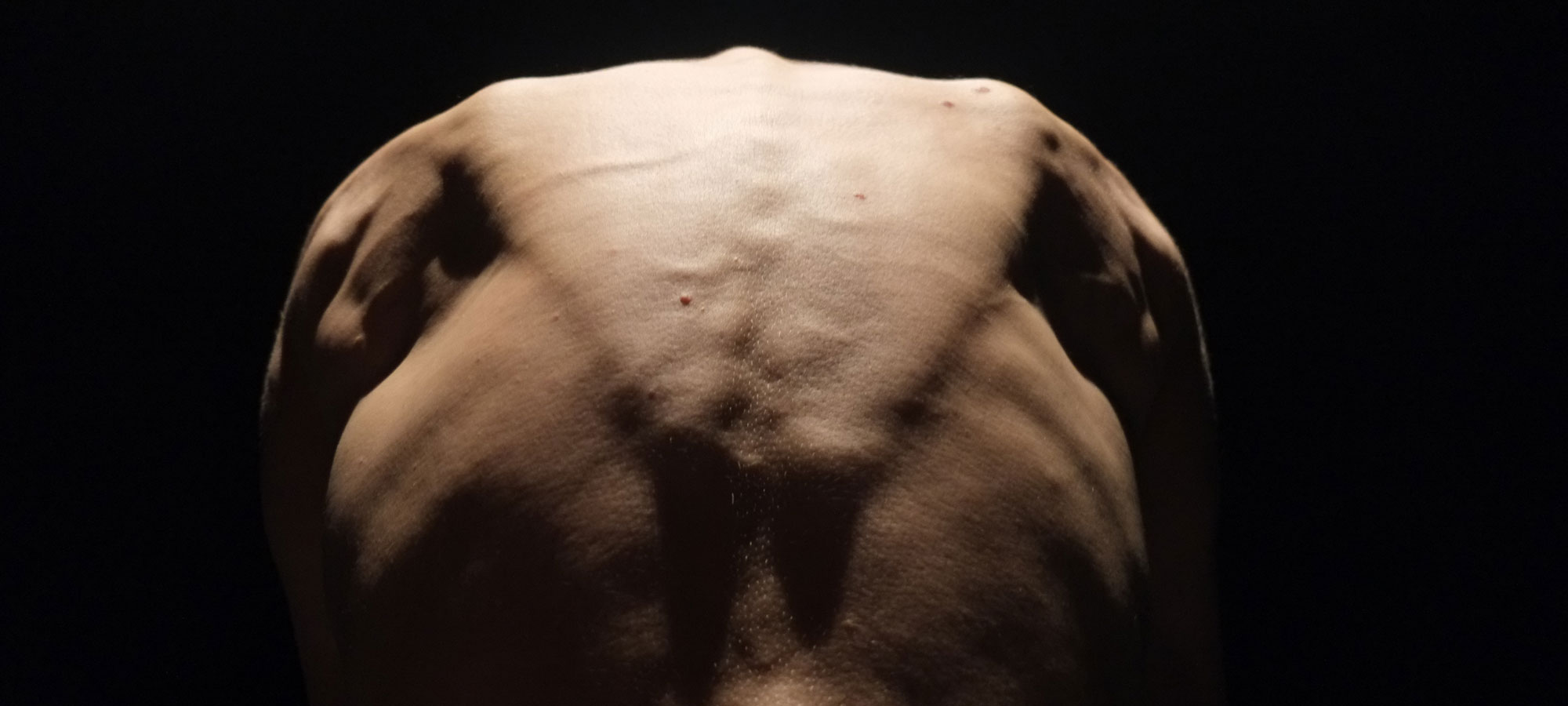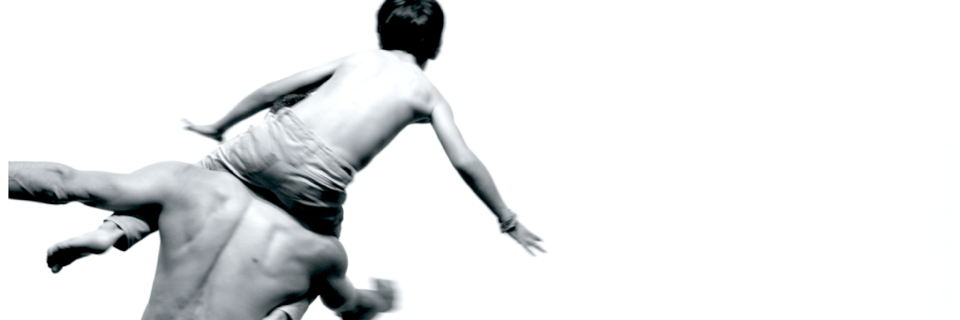When I look at a Strawberry, … a dramaturg’s insight.
When I look at a Strawberry, … a dramaturg’s insight. Read More »
Photographer Maya Wilsens was present during all performances of When I look at a Strawberry, I think of a Tongue. since 2018. She shares her personal impressions through these pictures.
When I look at a Strawberry, … as seen by Maya Wilsens. Read More »

I wish you dreams with no end and the furious desire to realize some of them.
I wish you to love what should be loved and forget what you need to forget.
I wish you passion, I wish you silence, I wish you to hear birds singing and children laughing when you wake up.
I wish that you respect other people’s differences because the merits and value of each person are worth discovering.
I wish that you resist getting stuck, that you resist being indifferent and that you resist the negativity and righteousness of our time.
Finally, I wish that you never renounce discovery, adventure, life, love because life is a magnificent adventure and no reasonable person should renounce it without a courageous battle.
I especially wish you to be yourself, to be proud of who you are and happy because happiness is our true destiny.
I wish you to love what should be loved and forget what you need to forget.
I wish you passion, I wish you silence, I wish you to hear birds singing and children laughing when you wake up.
I wish that you respect other people’s differences because the merits and value of each person are worth discovering.
I wish that you resist getting stuck, that you resist being indifferent and that you resist the negativity and righteousness of our time.
Finally, I wish that you never renounce discovery, adventure, life, love because life is a magnificent adventure and no reasonable person should renounce it without a courageous battle.
I especially wish you to be yourself, to be proud of who you are and happy because happiness is our true destiny.
Jacques Brel – 1968.

Eric Arnal-Burtschy invited me this fall to give some dramaturgical advice for his new creation WHY WE FIGHT. We had a beautiful exchange around this semi-autobiographical monologue in which he intertwines his own story with historical texts, letters and diary fragments from other people in an attempt to explore what can engage each of us.
I am happy to announce that WHY WE FIGHT will have its Belgian première at Les Brigitinnes as part of the Working Title Festival on December 1st.
We are very happy to announce that When I Look at a Strawberry, I think of a Tongue. has been selected for the LookIn’OUT Festival in Brussels. We will present the outlines of the work on November 30th at 16h35 at le BAMP!
LookIN’OUT is a collaboration between a residency space, le BAMP, a venue, le 140 and a support structure in production and distribution, AD LIB. The LookIN’OUT Festival invites a selection of artists in the fields of performing arts, visual arts and digital arts to freely present the bases, the intentions and the strong points of their current projects.
These short performances or presentations (10 to 30 minutes) take place at le BAMP and at 140, during the day and evening. They are reserved for professionals and the goal is for them to become acquainted with quality projects from their genesis on. Several moments of informal exchanges between artists and professionals are part of the program.
When I look at a Strawberry, … is selected for the LookIN’OUT Festival Read More »
Using inspiration from his own African background and his reflections on today’s world, Serge Aimé Coulibaly creates Kirina, a narrative about his contemporary and globalized daily reality. Kirinais not the reenactment of a historic event from West-African History. The original epic only served as an inspiration during the creation, as did many other epic stories and real contemporary events. Kirina is not a performance by African artists about Africa. It is a performance by world citizens – a choreographer with and an artistic team of members both with and without African roots – and inspired by their actual globalized reality. Derived from these inspirations, Coulibaly creates a performance about people on the move, the events that color and possibly direct these migrations and their influences on society.
Using a form that is very close to that of a traditional ballet with different chapters, he creates different moments of great emotional impact. There is the man who goes against the natural flow of time, as if the future and the people on the move could be held back. There is the community which in order to survive calls for its most profound energies, as if only their instincts will help them to move on. There is the woman struggling with femininity as a strategy. There is a man that cannot or can no longer walk who is encouraged by his environment to stand up, a clear reference to the epic Soundjata who was handicapped but just as well to all those images of exhausted migrants. There is the celebration of the fittest. There is the man who is chosen to sacrifice himself for a better future and is sent out on the sea, a scene based on a contemporary African tradition in which the ceremony for the death of those leaving the community and risking their lives at sea is held before their departure in case they won’t return. There is the big human flow that symbolizes migrations from all times and the individuals that are destabilized by their strength. There is the celebration of a (feminine black) leader. There is a wedding. Life continues no matter what the circumstances are. There is a rain dance in the middle of a sandstorm. To survive certain contexts superstition is more effective than belief in statistics and numbers. There is the lapidation of a strange woman who refuses to adapt, her hunchback a clear reference to Soundjata’s mother Sogolon but a situation that occurs today involving “strangers” all over the planet who are treated as if they were human waste just because they are or behave different. There is a general panic for no clear nor present reason, so well-known since the concept “terror attack” has integrated our societies. There is the big battle between two superheroes, the epic Battle of Kirina for sure but how different is it from our contemporary entertaining elections and debates? And there is the creature that derives from it all. Dangerous? Beautiful? Seductive? Violent? Is he the herald of a better future? Does he predict the apocalypse? Or is he no more than one small individual who endures life in his own personal way?
And in between, before and after all of that … there is the walk. The endless walk of humanity towards its destiny.No matter what.
As in all of Coulibaly’s creations, Kirina does not offer its audiences a clear answer to the questions it puts on the table. The performance aspires to open a space for reflection and dialogue about our contemporary global society and its ways of dealing with “the other” and migrations. In order to do so, it uses a great West-African epic to seek in those roots the moments of survival, bravery, virtue, regeneration and heroism and to share those human values with our world.
After a first successful première at the Festival de Marseille, Serge Aimé Coulibaly takes his new performance Kirina and it’s artistic team to Gladbecks Maschinenhalle Zweckel for a second première adapted to the special location in Germany’s famous Ruhrtriennale.

The Flanders Arts Institute created the special platform “Let me be your guide: contemporary dance from Flanders & Brussels” to help an international professional audience get acquainted with the Flemish and Brussels dance scene.
The platform contains extensive who’s who of contemporary dance with video portraits and a trenchant text on today’s dance scene.
Using text and video, reviewers and essayists highlight Flander’s main dance-makers. They guide you as you view the dance itself – an invitation to discover the richness of contemporary dance from Flanders and Brussels.
What kind of movement material and body images are dance-makers looking for? What themes prevail in their work? How do they work with movement and with time and space?
Each season on the National Day of Dance the Institute adds a few new portraits. This season the jury selected Serge Aimé Coulibaly as one of the new voices in Flanders’ and Brussels contemporary dance scene.
Being his dramaturg and longtime collaborator, I was happy to accept the invitation of Flanders Arts Institute to write Serge Aimé’s portrait. An English version of the portrait can be found here, those amongst you understanding Dutch can have a read here.

The word is out: the Festival de Marseille and Ruhrtriennale will present Serge Aimé Coulibaly‘s new creation Kirina.
Inspired by a founding West African battle, Kirina is a contemporary epic drawing from the wellsprings of history and fiction. On stage, nine dancers, six musicians, one narrator and forty local extra’s tell the story of a people bursting with hope and revolt, marching towards its future.
In Kirina Serge Aimé Coulibaly makes migration the theme of a choreographic, musical and intellectual exploration. Migratory movements have always had a key effect on our cultures and been agents of transformation. What are the languages, musical forms and narratives that have been created through migration and how have these influenced the cultures of other peoples and countries? In his search for a contemporary language equipped to question the present world and its underlying systems, Serge Aimé Coulibaly will address the founding myths of West African culture and how its stories operate across generations in the consciousness of today’s societies and influence their visions of the future.
In Rokia Traoré, the internationally celebrated musician from neighbouring Mali who creates her own contemporary version of classical Mandinka music, Serge Aimé Coulibaly, himself from Burkina Faso, has found an ideal partner for this new work. His choreography will be enhanced by four musicians and the dialogue between two singers and one narrator. The intellectual and textual basis for the work will be provided by the Senegalese economist, writer and musician Felwine Sarr, author of the book Afrotopia, with its pleas for an African “contemporanéité”.
You can discover Kirina this summer during the Festival the Marseille from June 29th to July 2nd and during the Ruhrtriennale from August 18th to 22nd or later in the season somewhere around the world. (all dates can be found here)
Photographer Maya Wilsens assisted first performance of When I look at a Strawberry, I think of a Tongue. in Ostend’s cozy Chambres d’O Festival on January 27th.
She made this beautiful series of impressions:
Do you wish to discover our work live?
Our next performance will be hosted by the wonderful Sugarbeat Studio in Bunsbeek (BE) on April 21st.
When I look at a Strawberry, I think of a Tongue. – presented in a living room. Read More »
During the coming Les Hivernales Festival, organized by the CDCN of Avignon, two new creations of NaïF Production will have their première. I have been working with the company since the creation of La Mécanique des Ombres (2016) and I am excited to join them again for both new works as an outside eye.

La chair a ses Raisons is initiated by Mathieu Desseigne Ravel and proposes a thorough study of the flesh and its capacity to communicate. This performance will be performed on February 24th and 25th.

Des gestes blancs is the result of a long research and development trajectory of Sylvain Bouillet with his son Charlie, investigating the relation between the adult’s and the child’s body and mind. They will perform on March 2nd and 3rd.
Hope to see you there and share our work with you!